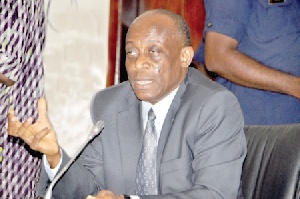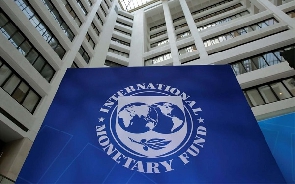The Minister of Finance and Economic Planning, Mr Seth Terkper, has challenged revenue collection institutions in the country to find ways of overcoming Transfer pricing as it negatively affects revenue collection in the extractive sector.
“Transfer pricing in the extractive sector is one major challenge our revenue institutions must overcome because of its negative effect on revenue collections. The issue of transfer pricing is sophisticated and complex in nature and it has the potential of eroding the tax base.” Mr Terkper observed.
These were contained in a speech read on his behalf at the launch of the Ghana Extractive Industry Transparency Initiative (GHEITI)2012/2013 Report for Mining, Oil and Gas Sectors in Accra recently.
The Minister said most extractive companies operated internationally and had extended dealings with affiliated companies which increased opportunities for Transfer pricing and potentially lowers the tax liability.
That, he said, further complicated the task of tax administration and created a challenge that required specific skills.
He indicated that Ghana's tax laws had provisions to address the issue, but the provisions were insufficient, adding that “the tax administration needs better training on how to recognise the transfer pricing opportunities in mining operations and stronger capacity to detect the respond to this problem.”
Mr Terkper noted that a well- functioning revenue distribution system was of limited value if contracts that were signed did not allow the government to capture sufficient taxes and royalties if the revenue allocation system was weak.
He said: “ To derive maximum resources from our natural resources, we must ensure that there is transparency throughout the value chain from the negotiation of contracts to the issues of revenue utilisation.”
Government, he stressed, was working assiduously to ensure that the revenues from extractive resources were prudently managed and utilised for the benefit of Ghanaians, particularly those immediately and negatively impacted by the activities of extractive sector companies.
He added: “Government would not only ensure that the allocation of revenues best promote sustainable development but would also ensure that the extractive and exploitative natural resource-based activities are fully integrated into community development planning in order to maximise their contribution to sustainable livelihoods in the areas where these resources are extracted.”
Commenting on the launch of the report, the National Co-ordinator of GHETI, Mr Franklin Ashiadey, said he had no doubt that once again Ghana had become a standard bearer by being the first among few countries to rise up to the challenge of reporting on its extractive sector along the new requirements of EITI Standards.
Mr Ashiadey, added, “The next challenge for us is to facilitate public engagements around these reports and these we are poised to do in the coming months.”
Business News of Sunday, 1 March 2015
Source: Public Agenda













